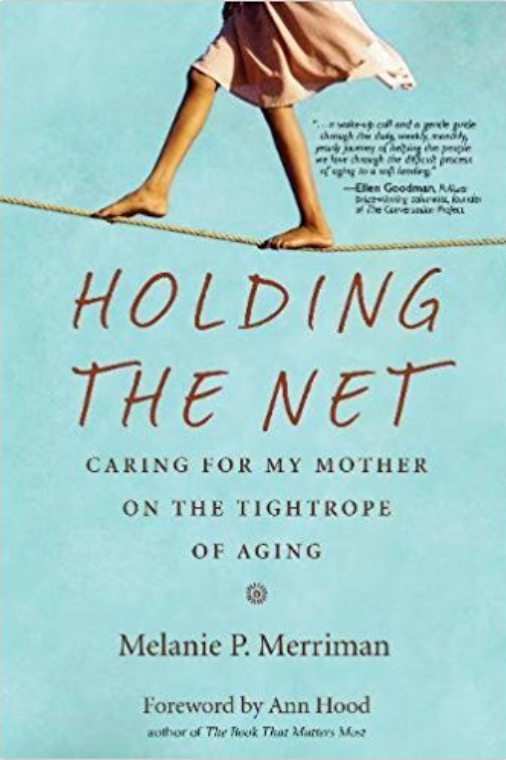Graduation In Prison
/Yesterday, I attended my second Exchange for Change graduation, which was more like a performance given by the guys who’ve completed one of a number of writing classes, mine included. This experience was different than my first one. Getting through security at Dade Correctional Institution was not scary, like before. I guided my friends through the process—hand over ID, take off shoes, walk through metal detector, wait behind locked door, wait again behind another locked door. They were nervous about visiting a prison for the first time.
This time, when I entered the visiting area, I knew the inmates would be wearing their prison blues and roaming freely around the room. I knew they would be kind, and welcoming and polite, because they are my friends now. I know their names and their stories. Twenty-five of these 200 or so men have taken my memoir classes. We write with vulnerability and honesty. Me included.
“Be careful,” friends said when I first started volunteering in prison. They told me scary stories of people they’d read about who tried to help prisoners and were murdered later. I understood my friends’ fear, but after my first visit to DCI, I knew my friends needed to meet these men in order to change their perception of the people we incarcerate.
Mike Gonzalez, Allen Dorsey “One Draft Rev” and Eduardo Martinez “E” were the first to greet us. I introduced my Writing Class Radio co-producers, Andrea Askowitz, Virginia Lora and Misha Mehrel to the men I have come to value and route for. “Misha just told a story on our last episode,” I told Mike. “Misha, Mike’s story was the one we aired two episodes ago.” It was so nice to connect the men—my outside friends to my inside friends.
I spend every Tuesday from 11-1pm inside DCI teaching memoir writing as a facilitator for Exchange for Change. I encourage the men to write their true, personal stories. Mike says he now hears my writing tips even when he writes letters to his family. Like what? What is this story about? Ground the reader…who, what, when, where? Mike told me that his sister listens to our podcast and that because of it, she feels closer to him. Barnett said that telling his story has made him feel more open and free. Willie said that he finally understands how to get his thoughts on paper. Willie’s thoughts tell of a past filled with discrimination, neglect, violence and regret. Some of Willie’s stories tell of childhood love. It’s obvious to me that Willie could have gone in a different direction if another path was available to him. It wasn’t.
E was the MC. He is talented and was as humble and as funny as ever. E spoke without notes and performed his piece without flubbing a cue. Genius was the word tossed around by the audience post performance. Genius doesn’t do him justice. His words, his voice made me cry. Not just because his words about mistakes and youth and life in prison touched me, but because his talent is real and valuable and is wasted in here, for life, without parole for something that happened when he was 19 years old. Remember when you were 19 and malleable and stupid and thoughtless?
Andrea met Luis Aracena and Juan Esquivel, two of my inside students whose stories I’ve shared with her. Stories we intend to share on the podcast. Luis stood strong while he performed Second Chances. I know from his stories in class that Luis served this country then lost his mind and his fight with cocaine. This country put him in prison when he needed some rehab and some love and a second chance. Juan’s poem spoke of a freedom only available in his dreams. ‘You see, I have not held my sons Juan Jr. and Roger for 19 years…I wake up, and all that I see is the cold, concrete coffin that envelops me. My life was like a sinking ship headed to the bottom of the sea, where no one would find me. Buried under the waves that shattered my dreams until Exchange for Change rescued me. Since then, I fly away on the wings of my pen, flying free through my writings and my songs.’ Juan ended his story with a song:
Dear Butterfly, fly away.
You don’t have to live inside the prison gate.
Dear Butterfly, fly away.
Share your beauty with a free heart today.
On the way out Juan handed me a note that read, “Allison, thank you for caring the way that you do! May your beauty continue to fly into the hearts of those whom society has cast away!” I shake Juan’s hand, smile and sneak a hug. Hugging is a no no in prison. But I sneak a hug with Barnett and Willie and E because they are my friends and I need a hug as much as they do.
I rode home with Andrea, my friend and vice chairman of Exchange for Change, Sonesh Chainani and his mom, Sheila. “How can we get these guys out of here?” Sheila asked. Sonesh has a law degree from Columbia but doesn’t actively practice law. Sonesh shook his head at his mom. Andrea was disgusted as Sonesh explained the three strikes rule, minimum mandatories, the appeals process. I was frustrated. I just kept saying, What a waste. What a waste. Andrea and I agreed that we need to get their stories out. The world has to know these men, understand them, so we can convince lawmakers to end these long prison terms. We need to motivate our friends to give to organizations that are making a difference in the lives of underprivileged children who need education and love and the option for a successful path in life. Groups like The Seed School and Educate Tomorrow help inner city and foster care children. Groups like Leap and Exchange for Change help prisoners move through life in a positive way as better human beings. Podcasts like Planted in Miami highlight powerful work the South Florida community is doing.
Before I met the men at DCI, fear and ignorance said, “Lock them up for life.” Now that I know more, I refuse to let fear win. If you want to make a difference, please go to http://www.exchange-for-change.org/donate/and make a donation. Any amount will help.
I Went to Prison
/By Allison Langer















